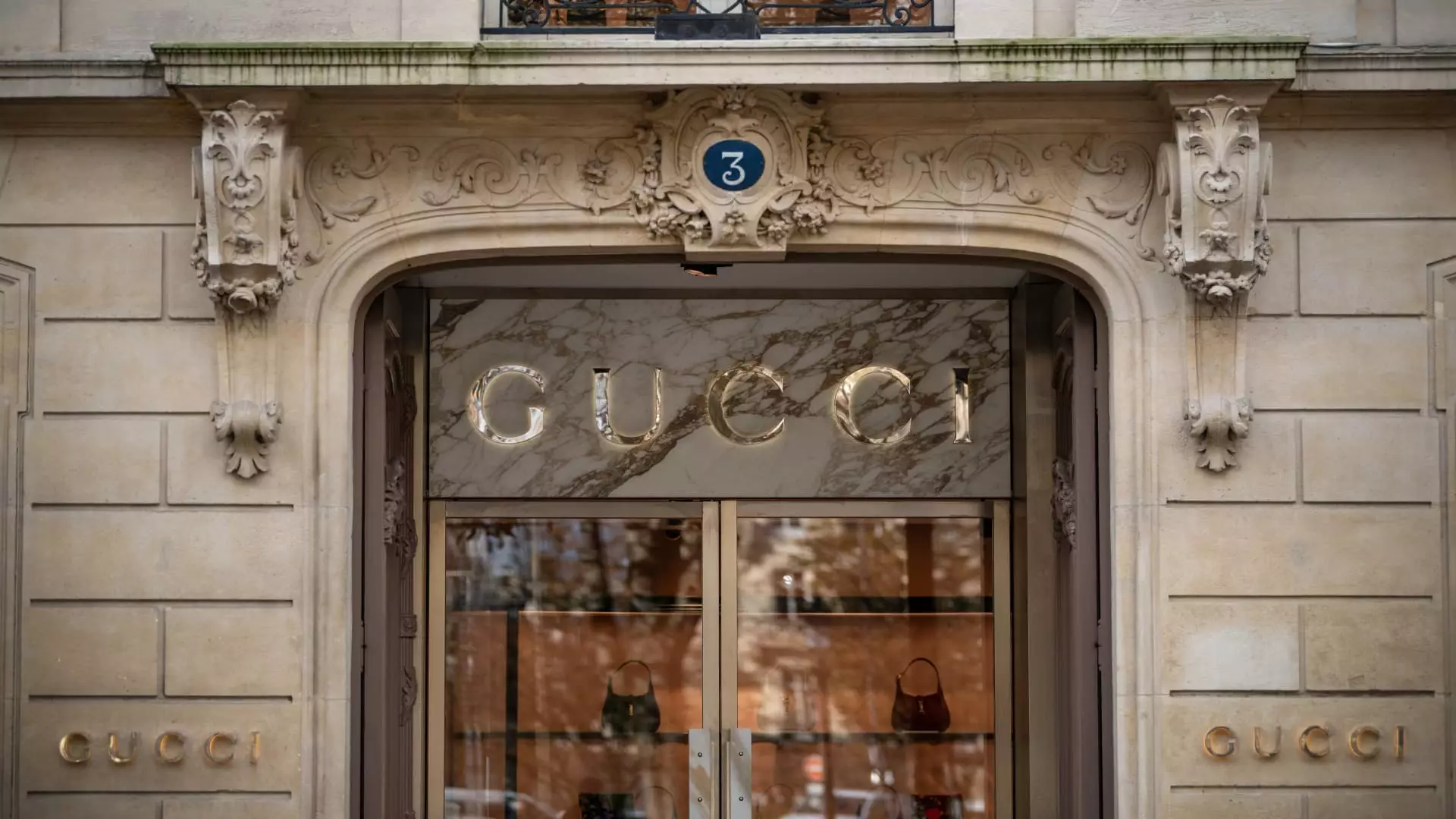In the realm of luxury goods, Kering stands as a beacon of high fashion, yet it seems even the most prestigious brands are not immune to the unforgiving forces of the economy. The French luxury powerhouse recently reported a staggering 14% plunge in first-quarter sales, bringing in only 3.9 billion euros, distinctly underwhelming compared to the anticipated 4.01 billion euros projected by analysts. This mismatch not only reflects poorly on Kering’s forecasting abilities but raises troubling questions about the underlying health of the global luxury market.
The decline is not just a small dip; it’s a monumental setback, especially considering that it mainly stems from the crumbling sales of Gucci, which constitutes almost half of Kering’s total revenues. With a staggering 25% drop to 1.57 billion euros, Gucci’s predicament casts a long shadow on Kering’s credibility as a leading luxury brand. What does this mean for the industry? It screams instability, and the consequences ripple across the luxury landscape, impacting rival brands like LVMH, Richemont, and Hermès, all of which are grappling with similar downturns.
China’s Economic Collapse: The Chain Reaction
While Kering’s troubles may seem like isolated incidents, they reflect the broader economic malaise affecting the luxury sector, particularly in Asia—a market that has long been viewed as a goldmine for high-end brands. A 25% decline in group sales within this key region is alarming and speaks volumes about changing consumer behavior and economic conditions. Once the crown jewel of consumption for luxury brands, China now presents a tangled web of economic uncertainty and diminishing consumer confidence.
The previous optimism surrounding a potential rebound in the luxury market seems to be fading as economic indicators reveal that the luxury sector is grappling with inflationary pressures and weakened demand. Kering’s Chairman and CEO, François-Henri Pinault, attempted to maintain an air of optimism, claiming they are committed to overcoming these challenges. However, one can’t help but wonder: is Kering simply a ship sailing toward inevitable capsizing while its captain offers empty reassurances?
The Cost of Missteps: Leadership in Turmoil
Worryingly, Kering’s leadership choices have not instilled confidence in shareholders. The appointment of Demna Gvasalia as Gucci’s new artistic director—as an answer to its floundering sales—has been met with skepticism. Recent controversies surrounding Gvasalia’s previous campaigns have left investors questioning the wisdom behind this decision. While a fresh vision is essential for reviving a struggling brand, hiring someone tethered to controversy raises alarms about Kering’s strategic direction.
Could this be a reflection of deeper problems within the company? If leadership struggles to make sound decisions amid rising internal and external pressures, then the path forward appears fraught with obstacles. In the competitive world of luxury, missteps come at an extraordinarily high cost, and Kering seems increasingly cornered by its lack of a coherent plan.
The Economic Headwinds: A Luxury Sector in Distress
Pinault’s acknowledgment of the macroeconomic headwinds facing Kering is far from comforting. Analysts, like Adam Cochrane from Deutsche Bank, caution that world economic uncertainties are likely to postpone a revival in luxury demand, nullifying any previous optimism. The resilience that we once attributed to luxury brands seems threatened by economic realities, where gears grind slowly amidst fears of impending tariffs and inflation-induced fiscal strain.
With consumer sentiment lowering across the board, Kering might find its ability to pass on costs to wealthy consumers severely limited. If affluent buyers are tightening their belts, we face a sobering reality—luxury brands like Kering may suffer deeper declines as they combat not only competition but their innate adaptability to shifting economic tides.
Looking Ahead: A Dawning Challenge for Kering
Kering’s story serves as a cautionary tale for the luxury sector. While the landscape may have seemed idyllic not long ago, the cracks are now glaringly evident. As this luxury behemoth finds itself grappling with significant losses and declining brand loyalty, it prompts the question: can Kering adapt in this ever-changing climate? The answers remain uncertain, but one thing is clear—if Kering doesn’t innovate and rebuild trust, it risks becoming yet another casualty in an industry fraught with challenges.

Leave a Reply